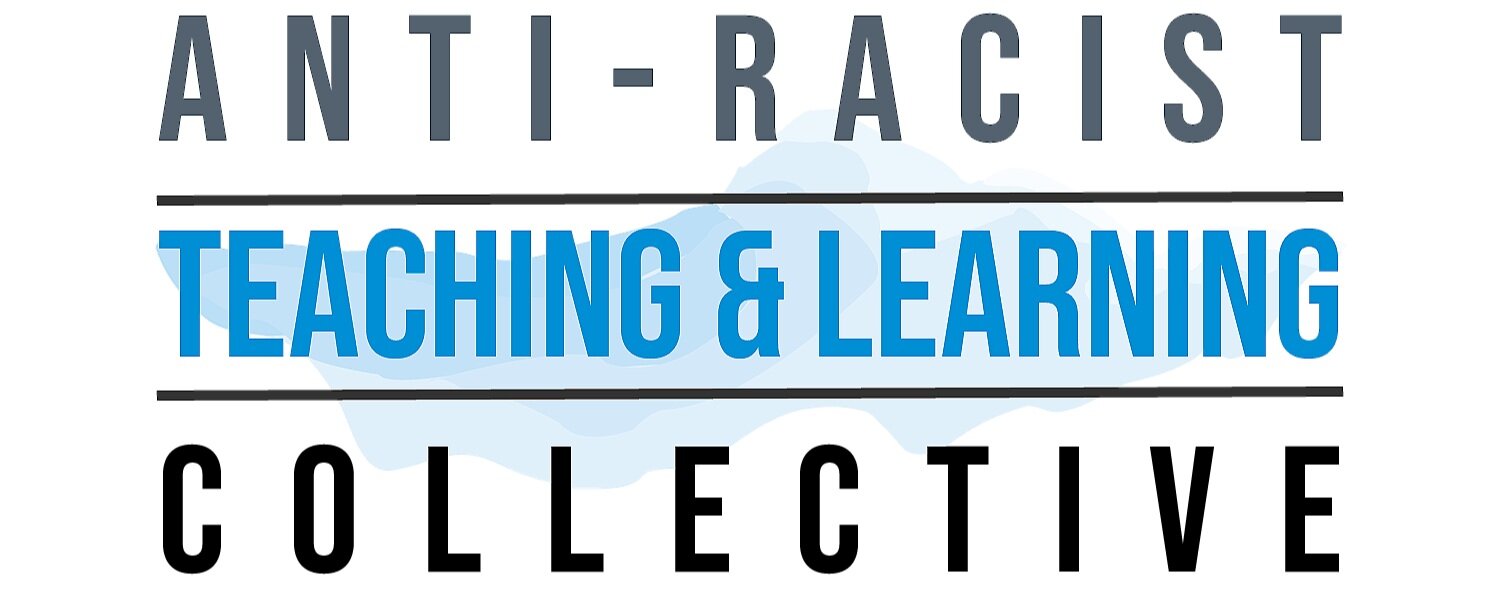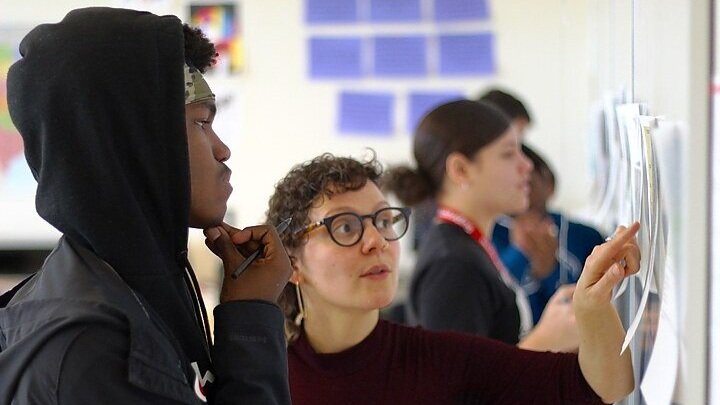About Us
The Anti-Racist Teaching and Learning Collective (ARTLC) brings together students, youth organizers, teachers, and teacher educators to build our shared capacity to transform K-12 public education in Connecticut. We share the belief that:
We are all embodying our roles as teachers and learners, no matter our age or background. We recognize that students and youth have critical roles to play as thinkers and teachers and that teachers and adults have important roles to play as learners.
We are all students committed to learning from social movements and from diverse traditions of anti-racist teaching, learning and pedagogy.
Anti-racist curriculum, consciousness-building, and pedagogy played a major role in sustaining and advancing many social movements. At their best, these curriculum efforts help to build and sustain many types of social movements.
Anti-racist curriculum and pedagogy cannot be confined to a single course, but must shape a broad set of courses, curricula and practices. Teachers and students must play a central role in designing curricula, and in supporting and training other teachers in their development.
Steering Committee
Ruth-Terry Walden English Teacher, Westhill High School, Stamford
Daniel Martinez HoSang Associate Professor of Ethnicity, Race & Migration, Yale University
Nataliya Braginsky Social Studies Teacher, Metropolitan Business Academy, New Haven
Jacqueline Dohna Program Manager, Students for Educational Justice
Marco Cenabre English Teacher, New Haven Academy
Tenzin Dhondup Recent CT High School Graduate (Naugatuck) and Yale University Student
Daisha Brabham History Teacher, Windsor Public Schools, Windsor
Lauren Anderson Founder, Possible Futures bookspace, New Haven
Jenny Heikkila-Díaz Professional Learning Coordinator, CT Council for the Social Studies
Kyla Griffith High School Student and Organizer, Students for Educational Justice
Our Practices
Support
Support, to address the oppressive effects of the racism that shape public education and society at large, by connecting educators, students and community organizations together for mutual aid.
Providing a regular space for teachers, students, youth organizers and advocates, education researchers, and other policy advocates in Connecticut to discuss strategy, curricular content, and to share news and developments related to the implementation of the curricula.
Linking teachers and students (and their schools) with content specialists, including experienced teachers as well as researchers at universities in Connecticut and elsewhere, to assist them in developing new courses and curricula.
Providing other forms of training, support and mentorship for teachers to expand their capacity to teach effectively in these areas and to abolish racist curriculum and damaging teaching practices.
Resources
Resources, including anti-racist teaching pedagogy, curriculum, connection to youth and community organizing, for teachers and students.
Researching, collecting, and disseminating model curricula from within Connecticut schools as well as from other states and school districts around the country, and from education researchers and scholars, that specifically draw on critical anti-racist frameworks.
Organizing
Organizing, to build power in schools and communities by elevating the experiences and voices of students and educators, and to hold decision-makers and institutions accountable.
Our History
Many youth organizations came together in spring of 2019 to lobby for the passage of HB7082, “An Act concerning the inclusion of Black and Latino Studies in the Public School Curriculum” before the Connecticut General Assembly. The Act, now known as “Public Act 19-12” requires public high schools in the state to include African-American and black studies as well as Puerto Rican and Latinx studies in their educational programs. This is to be done through the inclusion of at least one Black and Latinx studies course at the high school level, to be available to students, but not required.
The original initiative for the bill arose from extended community organizing by students concerned by the lack of instruction about race and its consequences in United States history. These students both joined and founded other youth organizing groups to mobilize for a legislative solution. The Anti-Racist Teaching and Learning Collective was founded as part of these efforts.
The bill failed to incorporate several of the key amendments supported by the community groups that facilitated its passage, such as that the course be titled and centered around “A History of Race and Racism in the United States.” These groups explain:
“Racism played an immeasurable role in the formation of the United States. As a result, race and ethnicity largely determine social status and opportunity in this country. However, our American History curricula continue to ignore and deny this injustice and its devastating impact, compelling students to accept the myth of meritocracy--the false ideology that hard work is more determinative of success than one’s racial, gender, and socioeconomic privilege. Denial of this reality harms young Americans.”
The ARTLC today is a group of teachers and educators that, in recognition of this reality, treats Public Act 19-12 as the floor rather than a ceiling to race-based education reform. We aim to take advantage of the opportunity presented by the passage of Public Act 19-12 to build a community of people who are committed to advancing anti-racist pedagogy, curriculum and practice within K-12 public schools in Connecticut.
Through various resources, support systems, and facilitating grassroots organization, the Collective joins many other groups in the pursuit of a more complete, equitable, effective, and honest educational framework.


